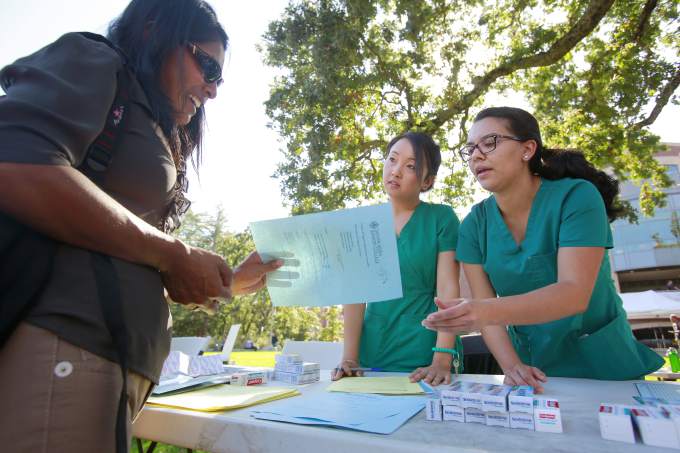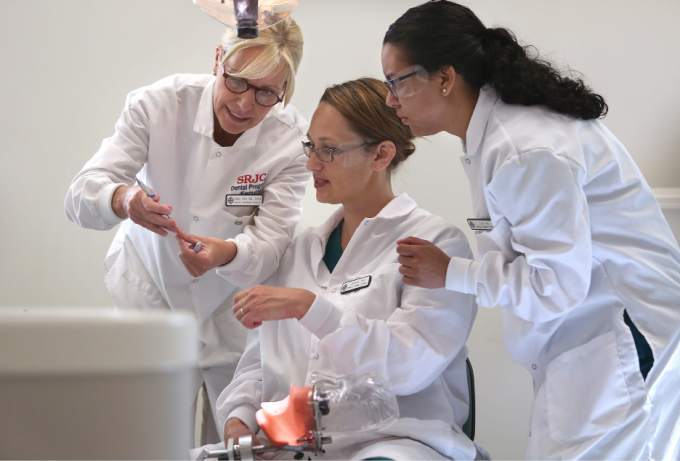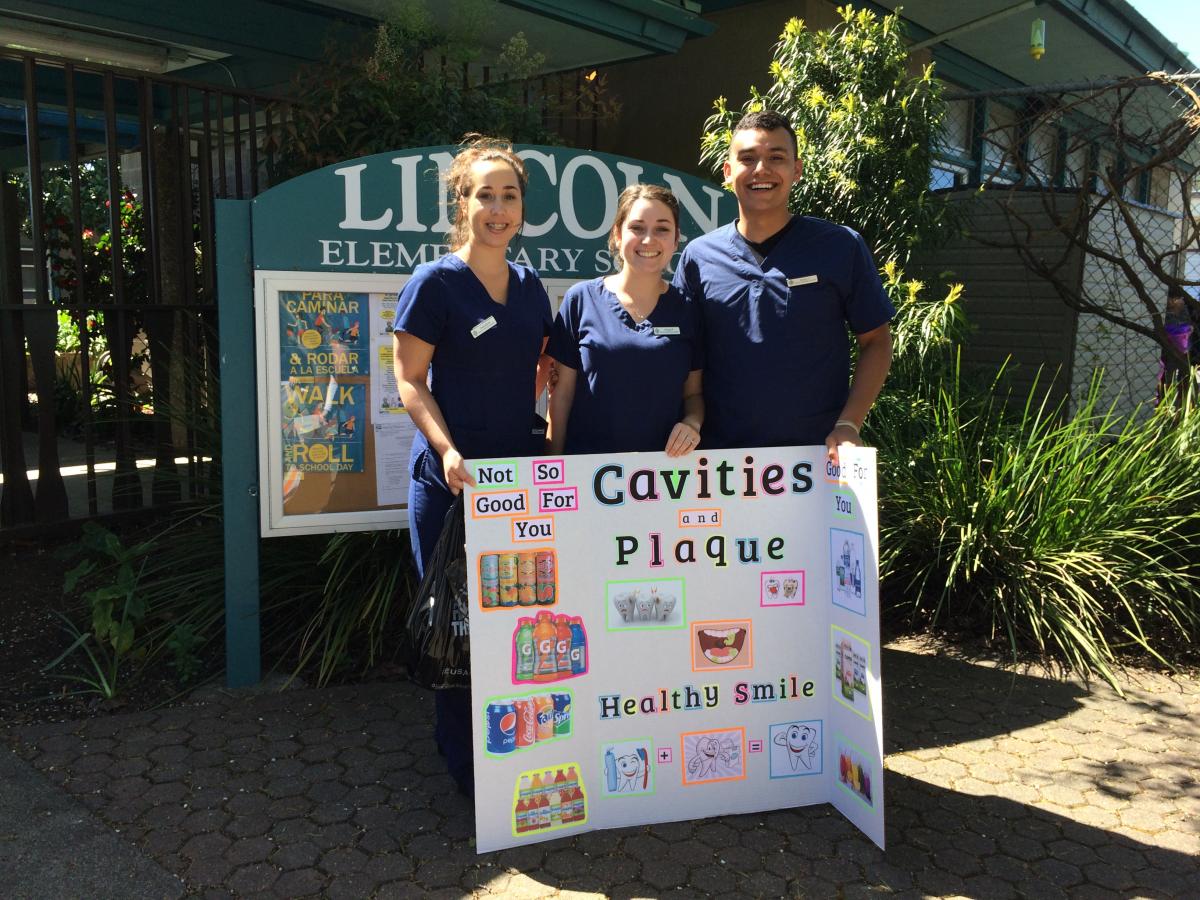
This department offers a Dental Teaching Clinic
We are open to the public for preventive dental procedures such as dental cleanings and radiographs.
Please see the links under DENTAL CLINIC for more information on how to become a patient.
The Dental Programs at Santa Rosa Junior College includes both Dental Assisting and Dental Hygiene Programs.
Please use the links provided for information on becoming a dental assistant, dental hygeinist.
CAREER OPPORTUNITIES:
THE SRJC DENTAL ASSISTING PROGRAM IS A 2018 CA STATE COMMUNITY COLLEGE CHANCELLOR’S OFFICE GOLD STAR AWARD WINNER.
- This award is given to career and technical education courses who show outstanding post-college outcomes in: Employment, Earnings Gain and Regional Living Wage.
- SRJC Dental Assisting Graduates achieve: 100% employment in their field, have an 161% increase in earnings, and 73% attain the regional living wage.
THE SRJC DENTAL HYGIENE PROGRAM IS A 2018 CA STATE COMMUNITY COLLEGE CHANCELLOR’S OFFICE GOLD STAR AWARD WINNER.
- This award is given to career and technical education courses who show outstanding post-college outcomes in: Employment, Earnings Gain and Regional Living Wage.
- SRJC Dental Hygiene Graduates achieve: 100% employment in their field, have an 176% increase in earnings, and 90% attain the regional living wage.
ALERT – Dental Hygiene Applicants, beginning with class entering Fall 2020:
The Dental Hygiene Program requires a 4-5 unit course in intermediate algebra or higher as a prerequisite to admission into the Dental Hygiene Program.
All students must fulfill this requirement and all other Science and non-Science prerequisites Prior to the time of application. Contact a SRJC Health Science counselor for the most current information.

Dental Programs Mission Statement
The Santa Rosa Junior College Dental Programs will educate a group of diverse dental hygiene and dental assisting students by providing a curriculum which reflects the core values of the profession, instills life-long learning appreciation, and educates the students as caring, clinically proficient and ethical entry-level dental health care professionals prepared to serve the community in both private and public settings.
Philosophy of Allied Dental Programs 
Society is made up of individuals interacting in complex groups with differing cultural, social, educational and spiritual values. The nature of society is one of constant change. As such, individuals must adapt to societal change to fulfill needs and make existence meaningful.
We believe that human beings have human needs related to health, which are biological, psychological and socio-cultural in nature. Society responds to these needs by promoting the advancement of health. The concept of health contains a continuum from maximum illness to maximum wellness. Individual goals for wellness may be different from those of society. Oral health care providers should be responsive to the needs of both the individual and the society. Oral health sciences are composed of disciplines of study, which provide skill, knowledge and services to society.
The Santa Rosa Junior College Allied Dental Programs are designed to produce individuals capable of meeting professional and societal needs. The role of each program is to provide an intellectual atmosphere producing oral health-care providers who are literate, knowledgeable, motivated to be life-long learners, capable of solving problems and making decisions. Faculty members foster the development of caring, curious, competent and ethical practitioners. Furthermore, the SRJC faculty is committed to serving as role models to inspire personal and professional growth and advancement.
The educational process should be student-centered, relevant, goal-directed, competency-based and conducted in a facilitative environment. The process encourages active student participation and the application of research principles resulting in meaningful learning, the stimulation of intellectual curiosity, and the development of critical thinking. An environment conducive to learning is structured to include mutual helpfulness, freedom of expression, mutual trust and respect and physical comfort while recognizing similarities and accepting differences.